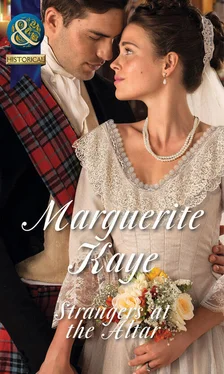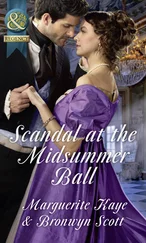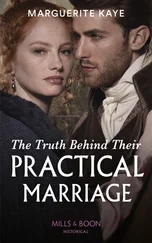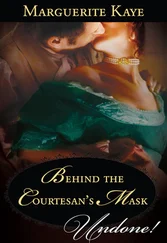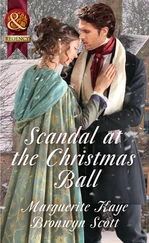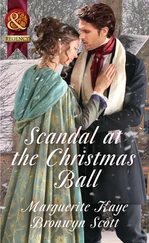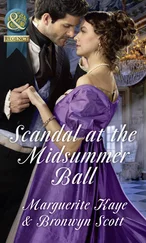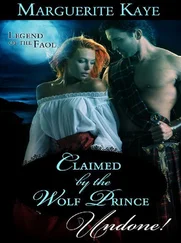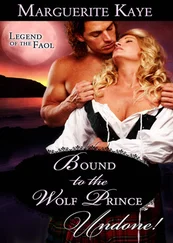Innes swore under his breath, long and viciously. And in Gaelic. He noticed that too late, and then swore again in the harsher, more familiar language of his construction workers. Picking up a handful of pebbles, he began to launch them one after the other into the water, noting with faint satisfaction that they fell far out.
‘Impressive.’
He hadn’t heard her moving. How long had she been standing there, watching him? ‘The boat is late.’ Innes made a show of shading his eyes to squint out at the Kyles.
‘You must be nervous,’ Ainsley said. ‘I know I would be, returning after such a long period of time. I expect you’ll be wondering how much has changed.’
Her tone was light, almost indifferent. She was studiously avoiding his gaze, looking out at the water, but he was not fooled. She was an astute observer. One of those people who studied faces, who seemed to have the knack of reading the thoughts of complete strangers. ‘Nothing will have changed,’ Innes said with heavy certainty. ‘My father prided himself on maintaining traditions that were hundreds of years old. You’ll feel as if you’ve stepped back into the eighteenth century.’
Her brows lifted in surprise. He could see the wheels turning in her clever brain, but she chose merely to nod, and perversely, though he knew he would not like it, he wanted to know what she was thinking. ‘Go on. Say it.’
‘It is nothing. Only—you are very much a man of the nineteenth century.’
‘You mean you’re not surprised I left such a backward place.’
‘Such a backward place must be crying out for a man like you.’ Ainsley pushed her windswept hair out of her eyes. ‘I meant that I am not surprised you and your father could not see eye to eye.’
She slipped her gloved hand into his, in the folds of his greatcoat. He twined his fingers around hers, glad of the contact. Ainsley Drummond, his wife. A stranger she might be, but he was glad of her presence, and when she smiled up at him like that, the dread contracted just a little. ‘I think that’s the boat,’ she said, pointing.
It was, and he could see already that Eoin was at the helm. With a determined effort, Innes threw off his black mood. ‘Are you ready?’ he asked, sliding his arm around Ainsley to anchor her to his side.
‘You sound like you’re standing under the gallows, if you don’t mind my saying.’
Innes managed a rigid smile. ‘Judgement Day is what it feels like,’ he said wryly, ‘and I suspect it will be a harsh one.’
* * *
Looking out over the bay, Ainsley’s nerves made themselves known in the form of a fluttering stomach as she watched the little boat approaching. Until now, she had lost herself in the bustle of arrangements, the thrill of the journey. Her first time on a paddle steamer, her first time on the west coast and now her first time in a sailing boat was looming. Then would be her arrival at Strone Bridge with the man who was her husband. She worried at the plain gold band on her finger, inside her glove. She still couldn’t quite believe it. It did not feel at all real. She was now Mrs Drummond, wife of the laird of Strone Bridge, this stranger by her side whose dawning black mood had quite thrown her.
Innes didn’t want to be here, though he was now doing a good job of covering it up. There was a lot going on below the surface of that handsome countenance. Secrets? Or was it merely that he had left his past behind and didn’t want to be faced with it again? She could understand that. It was one of the reasons she’d been happy to leave Edinburgh for a while. Perhaps it was resentment, which was more than understandable, for unlike her, the life Innes was leaving behind was one he loved.
As he hefted their luggage down to the edge of the shoreline, Ainsley watched, distracted by the fluidity of his movements, the long stride over the pebbles, the smooth strength in the way he lifted even the heaviest pieces so effortlessly. She recalled Felicity’s joke about him being a wild Highlander, and wondered if he would wear a plaid when he was back at Strone Bridge. He had the legs for it. A prickle of heat low in her belly made her shiver.
‘Feasgar math.’ The bump of the boat against the tiny jetty made her jump.
Ainsley stared blankly at the man. ‘Good day to you, Mrs Drummond,’ he repeated in a softly lilting accent, at odds with the curt nod he gave her before starting to heave the luggage Innes was handing him into the boat.
‘Oh, good day,’ Ainsley replied.
‘This is Eoin Ferguson,’ Innes told her, ‘an old friend of mine. Eoin, this is my wife.’
‘I’m afraid I don’t speak any Gaelic,’ Ainsley said to the boatman.
‘Have the Gaelic,’ he said to her. ‘We don’t say speak it, we say have it.’
‘And there’s no need to worry, almost everyone on Strone Bridge speaks English,’ Innes said, frowning at the man he claimed for a friend, though Ainsley could see no trace of warmth between the two men.
‘I have never been to the Highlands,’ she said with a bright smile.
‘Strone Bridge is not far north of Glasgow as the crow flies,’ Eoin replied. ‘If you’re expecting us all to be wandering around in plaid and waving claymores, you’ll be disappointed. Are you getting in or not?’
‘Oh, right. Yes.’ She could feel herself flushing, mortified as if he had read her earlier thoughts. He made no move to help her. Seeing Innes’s frown deepen, Ainsley gave him a slight shake of the head, clambering awkwardly and with too much show of leg into the boat. Eoin watched impassively, indicating that she sit on the narrow bench at the front of the dinghy, making a point of folding his arms as she then proceeded to clamber over the luggage stacked mid-ship.
She tried not to feel either slighted or crushed, reminding herself she was a stranger, a Sassenach, a lowlander, who spoke—no, had —no Gaelic and knew nothing of their ways. Innes, his mouth drawn into a tight line, had leaped into the boat, and was deftly untying the rope from the jetty as Eoin tended the sail. She watched the pair of them working silently together as they set out into the water, the contrast between the harmony of their movements stark against the undercurrent of tension that ran between them. It spiked as Innes made to take the tiller.
‘The tide is against us, and I know the currents,’ Eoin said, keeping his hand on the polished wood.
‘I know them every bit as well as you.’
‘You used to.’ Eoin made no attempt to hide his enmity, but glared at Innes, his eyes, the same deep blue as Innes’s own, bright with challenge. ‘It’s been a long time.’
Innes’s fists clenched and unclenched. ‘I know exactly how long it’s been.’
A gust of wind took Eoin’s words away. When Innes spoke again, it was in a soft, menacing tone that made the hairs on the back of Ainsley’s neck stand on end. And it was in Gaelic. Eoin flinched and made to hand over the tiller, but Innes shook his head, joining Ainsley in the prow, turning away from her to stare out at the white wake, his face unreadable.
The wind that filled the sail blew in her face, whipping her hair from under her bonnet, making her eyes stream. Innes had not worn a hat today, a wise move, for it would surely have blown into the sea. Though he was, as ever, conservatively dressed, his trousers and coat dark blue, his linen pristine white; compared to Eoin’s rough tweed trews and heavy fisherman’s jumper, Innes looked like a dandy. She had watched the other man noticing this when he docked, but couldn’t decide whether the twitch of his mouth was contempt or envy.
The boat scudded along, the keel bumping over the waves of the outgoing tide. While the paddle steamer had felt—and smelled—rather like a train that ran on water instead of rails, in this dinghy, Ainsley was acutely conscious that only a few planks of wood and some tar separated her from the icy-cold strait. Spray made her lips salty. The sail snapped noisily. She began to feel nauseous, and looking up, catching a cold smile on Eoin’s face as the boat lifted out of the water and then slapped down again, began to suspect that he was making their voyage deliberately rough.
Читать дальше
